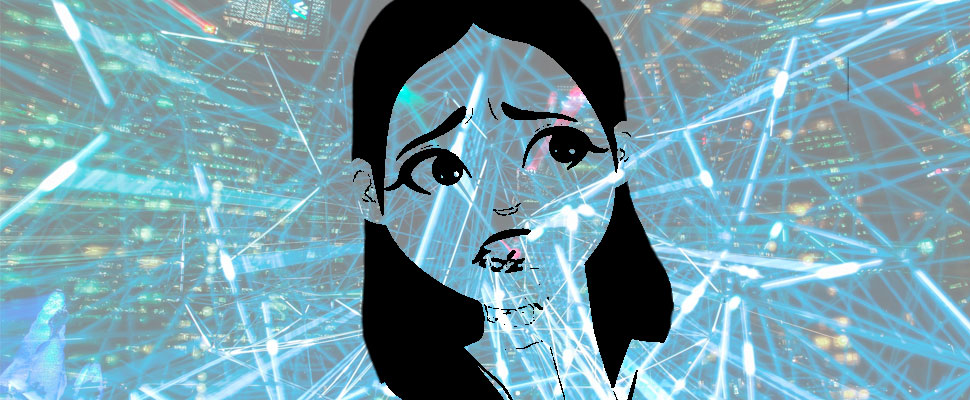Are you afraid of technology and its advances?
Are you afraid of technology and its advances or does the issue worry you? Read the following

The Homo sapiens has developed its identity on the planet from the construction of culture in various forms. One of them is the development of technology, that is, the practical development of ideas in order to carry out a task in a better, faster or more comfortable way. However, this is not an exclusive ability of people: some animals also go to tools to achieve a purpose.
Leer en español: ¿Le tienes miedo a la tecnología y a sus avances?
For example, certain birds can use a stick with their beaks to dig in a certain place in order to access their food more simply. However, no species on Earth, apart from ours, has managed to get so far in technology issues or developed it in so many ways, thus generating complex situations.
Technological advances have been a fundamental element in the success or failure of many civilizations and, in a special way, have generated processes related to the way people or human groups understand them. If the walls of Constantinople, invincible for centuries, fell before the Turkish stalking in 1453, it was due in a special way to the use of a new weapon: the bombard, a powerful cannon. Not to mention the conquest of America by the Europeans: muskets and metal armor against bows and arrows. Possibly, certain objections that many people have about technology and its advances are due to the fact that, too often, these have been used not for the well-being of people, but for the opposite. Truly, they do not lack reason.
Neither the arrival of supposed (and proclaimed) age of progress prevented people from feeling uncomfortable with the technologies: the eighteenth and nineteenth centuries, moments of advance thanks to the Industrial Revolution, found certain people trembling with fear in the first trains, believing to go to a hyper-speed, like Trip to the Stars … of no more than 20 kilometers per hour. And to Joseph Marie Jacquard, the inventor in 1801 of a loom that allowed a single person to do the work of several and that was used with punched cards, was almost killed by a group of furious colleagues weavers who claimed that, with that device, they they would be without work.
You may be interested in reading: Are we less intelligent because of technology?
Possibly the difference between those fears of yesteryear and the current fears of technology are due to the fact that, in the past centuries, the advances existed, but they did not advance as quickly nor did they arise in terms of expiration as soon as it happens today. Nor were they as massively disseminated as they are now because they did not reach people so easily, they were not as accessible as they are today (really?). Technology in the past was not part of the family basket, it was not a basic element of consumption (is it really?). Previously, the devices were produced to last and not to be replaced every few months (what justifies the change, finally?). The impression of "falling behind" which, in itself, generates anxiety or fear, is something that the worker of the foundry in nineteenth-century Germany did not think so much as the clerk in Sao Paulo at the end of the twentieth century or the adolescent and his group of friends in Athens in 2018. The same commercial system, through advertising, guided by the desire to sell for irrational consumption, is constantly charged with feeding the feeling that the meaning of human life, the development of social relations, personal fulfillment and other instances revolve around knowing how to use the (no longer so) new technologies.
The problem, this way, is that more and more we sold the idea that people are at the service of technologies (it is likely that speeches like those of the Terminator and The Matrix movies have encouraged) when in reality we should build structures on the contrary. This is a crucial point to understand, in some way, the technophobia of a good number of people: they feel overwhelmed by the changes because they feel alone in front of it, because they do not understand it, because they feel so surrounded by it that they no longer know where to go to solve a particular problem. They can be rejected socially or they can lack contact with friendly people who, with patience and good sense, guide them in the use of technological tools.
Worse still: communities that do not need them are forced to adopt them, generating terrible results; Various development projects are proof of this, as the Bolivian communicator Alfonso Gumucio testifies. The technological oversupply happens in these cases, in a special way, a difficult account to swallow. Here is the element of education, which should not be limited to learning to use a certain tool, but also to generate reflection about its possibilities, its limitations, and its true meaning, as well as a greater sense of solidarity not only between peers but also between generations and between societies.
There is much in common between the fear of riding a train of the nineteenth century and the fear of paying an electronic invoice of the XXI century because the mistrust of the new is a fundamental element of our species. Rethinking how we face that fear according to each context from the point of view of good sense, respect, and solidarity, in addition to the same goals that advances have, could help us to overcome it.
LatinAmerican Post | Carlos Novoa
Translated from "Tecnofobia de antes, tecnofobia de ahora"
Listen this article





